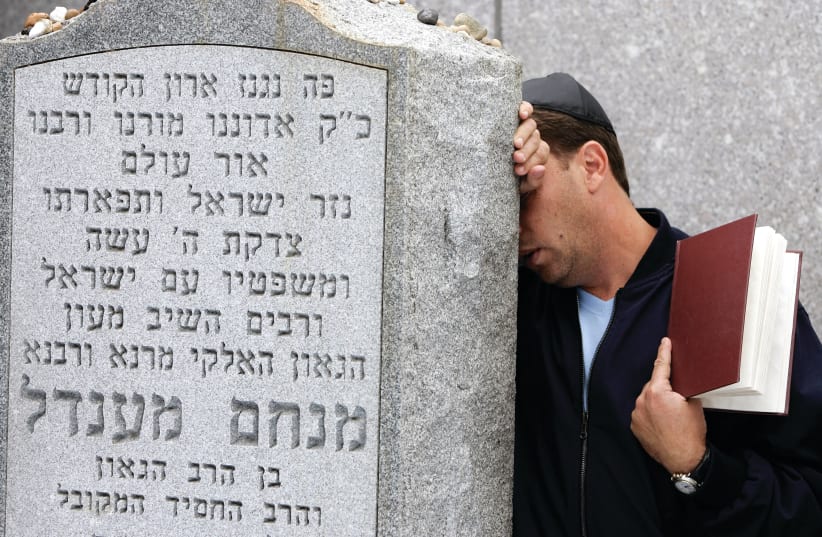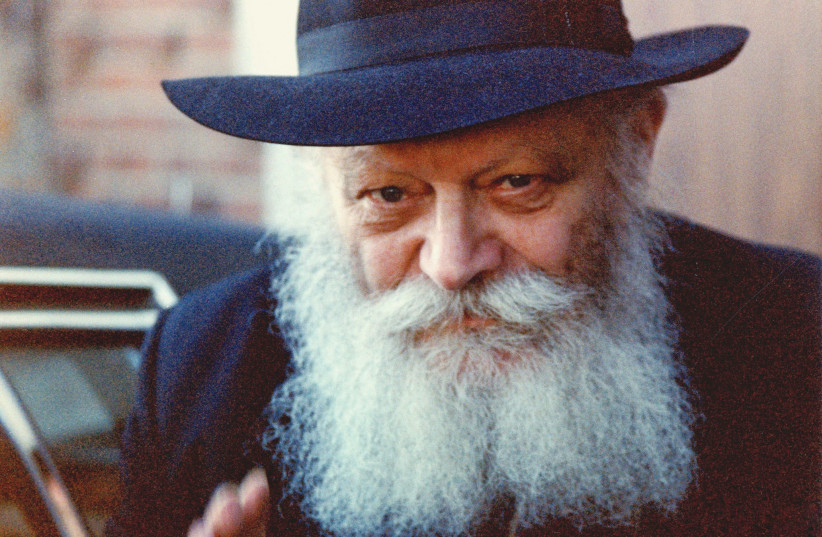On the 12th of January this year, the 10th day of Shvat on the Hebrew calendar, many Jewish communities around the world will mark the 70th anniversary since the Lubavitcher Rebbe, of blessed memory, assumed the Chabad-Lubavitch mantle of leadership.
The Rebbe is one of the great figures of Jewish renaissance and revitalization after the horrors of the Holocaust, and his profound impact on Jewish life and history can be discerned from the subtitle of a New York Times best seller called Rebbe, authored by Joseph Telushkin.
Nearly three decades after his death, his legacy lives on, and his presence continues to be felt through the efforts of his task force of nearly 5,500 shluchim, or emissaries, who, inspired by his vision and calling, choose to dedicate their lives to strengthening Jewish unity, community and continuity around the world.
It has been noted that while, in general, one of the widely cited voids in Jewish life today is in the realm of leadership, in Chabad there are more young couples ready to devote their lives to leadership than there are available positions and postings.
As such, it would be appropriate to reflect on the origins of his unique model of leadership, one that led former chief rabbi of the Commonwealth, Lord Rabbi Jonathan Sacks, of righteous memory, to say: “The Rebbe created leaders, not followers.”
INTERESTINGLY, AND perhaps ironically, one of the most basic qualities of a great leader is his or her decided lack of interest in becoming one.
A hallmark of some of the greatest leaders in history is that they did not begin life with grand visions of, or aspirations for, leadership but, rather, humbly responded to an urgent call of the hour.
Take, for example, the first and perhaps most influential Jewish leader of all times, Moses, a leader who has for thousands of years inspired not just Jewish leadership but universal leadership as well, as highlighted by Bruce Feiler’s book America’s Prophet.
Our sages teach that “God spent a full seven days persuading Moses at the thornbush to undertake his mission.”
It wasn’t ambition but altruism that drove Moses to begrudgingly assume the mantle of Jewish leadership and speak truth to power when confronting the mighty Pharaoh on behalf of a small group of hurting slaves.
It wasn’t a lofty and grand vision to transform a depraved band of slaves into “a nation of priests” that drove Moses to become a mouthpiece for God and a spokesman for the Israelites, and it wasn’t a hunger to leave his mark on history that burned in Moses’s belly when he entered the world of politics and became public servant No. 1.
What drew Moses to activism was a weighty sense of duty to ease the pain of a fellow human being enduring a beating.
It wasn’t reward but a response to injustice that spurred Moses to greatness.
The Rebbe’s legendary leadership began similarly, not as a career but as a calling.
After the death of his father-in-law, the previous Lubavitcher rebbe, on January 28, 1950, he incessantly refused the relentless requests of the hassidim that he become the new rebbe.
And like Moses, whose initial response to the prospect of leadership was: “Who am I that I should go to Pharaoh, and that I should take the Children of Israel out of Egypt?” the Rebbe, too, initially responded with expressions of inadequacy.
“I received your letter [proposing my candidacy as rebbe] and I was shocked to read it, demanding matters that are not part of me.... I do not blame you, because you do not know me personally, but at least you should have checked before writing to me.”
When a certain Rabbi Dubov, a prominent Chabad hassid, urged the Rebbe to assume the mantle of leadership, the Rebbe questioned the very assumption that he was fit for leadership, by exclaiming, “What do you suppose? That Mendel Schneersohn is a rebbe?!”
Indeed, so opposed was the Rebbe to assuming the mantle of Chabad leadership that, at one point, he even threatened to run away if the hassidim did not stop pressuring him to accept the role of leadership!
And as late as two weeks before he accepted the position of rebbe, he was still vehemently objecting to the nomination. On January 2, 1951, a group of hassidim came to see him with a coronation letter. After reading just the first sentence, the future rebbe folded the letter up and put it on his table. With tears on his face, the Rebbe said, “Please leave, this letter has no relevance to me.”
So what changed the Rebbe’s resolve, and consequently the history of Judaism in postwar America?
A pointed comment from his wife is said to have made all the difference: “If you don’t become rebbe, 30 years of my father’s life will have gone to waste.”
Only once put that way, it seems – as an urgent call of the hour rather than as an opportunity to be influential – did the Rebbe consider sacrificing his privacy and personal life for the public and all-consuming life of a hassidic rebbe.
Years later, the Rebbe would allude to his wife’s urging, in conversation with Rabbi Herbert Wiener, author of Nine-and-a-half Mystics: “To begin with, it is always pleasant to run away from responsibility. But what if running might destroy the congregation, and suppose they put the key in your pocket and run away? What can you do then…?”
Clearly, the mantle of leadership had not grown on the Rebbe over the years, and as the following rare letter of the Rebbe demonstrates, the Rebbe’s activism and public service did not derive from his natural disposition and personality:
“I must emphasize that despite the aforementioned [urging you to be active in communal affairs] it remains now, just as it was when we met in person, that I myself take no pleasure in being involved with communal affairs....”
Great leaders don’t set out to change history, but respond to history’s call for change when it comes knocking on their door.
In a world that is so desperately in need and search for leadership, it would pay well for aspiring leaders and influencers of any kind to reflect on the Rebbe’s model and legacy of leadership, motivated and infused by a calling rather than careerism, which, if the past 28 years are anything to go by, will continue to be a gift that keeps on giving.
The writer is the rabbi of Beit Baruch and executive director of Chabad of Belgravia, London, where he lives with his wife, Chana, and children.

